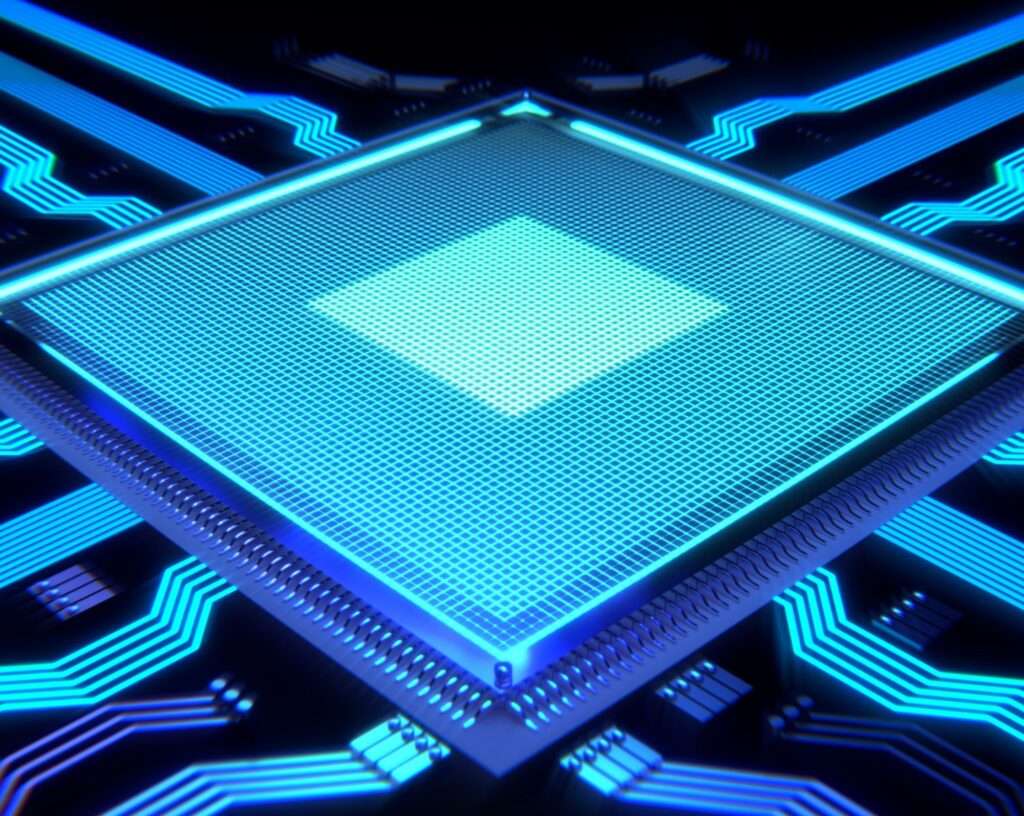
Many of us may be pondering about the future of CPUs in 2024, wondering about the latest anticipated technologies. Let’s delve into this question from a research perspective and provide some insights.
In 2024, the world of CPUs is poised for remarkable advancements. Anticipated technologies include cutting-edge process nodes, innovative architectures, enhanced multi-core capabilities, and integrated artificial intelligence, all of which promise to redefine the landscape of computing performance
Contents
- 1 The following are some of the latest technologies that are expected to be in CPUs in 2024:
- 2 There are a few specific technologies that are expected to emerge in CPUs in 2024:
- 3 What will be the impact of CPUs in 2024 enabled with Quantum computing on demanding games?
- 4 Will CPUs in 2024 with quantum computing be compatible with our current GPUs?
The following are some of the latest technologies that are expected to be in CPUs in 2024:
- New process nodes: Intel and TSMC are both expected to release new process nodes in 2024, Intel 4 and TSMC N3, respectively. These new process nodes will allow for smaller transistors and faster clock speeds.
- New architectures: Intel is expected to release its next-generation processor architecture, codenamed Arrow Lake, in 2024. This new architecture is expected to offer significant performance improvements over the current Raptor Lake architecture. AMD is also expected to release a new processor architecture in 2024, codenamed Granite Ridge.
- More cores and threads: CPUs in 2024 are expected to have more cores and threads than ever before. This will make them better suited for multitasking and demanding applications like video editing and 3D rendering.
- Integrated AI acceleration: CPUs in 2024 are expected to have integrated AI accelerators that will boost performance for AI-powered applications like machine learning and image recognition.
- Enhanced security features: In 2024, CPUs are expected to have enhanced security features thatCPUs protect against cyberattacks.
In addition to these general trends,
There are a few specific technologies that are expected to emerge in CPUs in 2024:

- Quantum computing: Quantum computing is like a high-tech wizard that crunches numbers using magic from the quantum world! Quantum computers are still in their early stages of development, but they have the potential to be much faster than traditional computers for certain types of tasks. In 2024, we may see CPUs that incorporate quantum computing elements.
- Neuromorphic computing: Neuromorphic computing is a new type of computing that is inspired by the human brain. Neuromorphic processors are designed to be very efficient at processing data from sensors and cameras. In 2024, we may start to see neuromorphic processors being used in CPUs for applications such as self-driving cars and robotics.
Overall, the CPU market is expected to be very exciting in 2024. With new process nodes, architectures, and technologies on the horizon, we can expect to see CPUs that are faster, more efficient, and more secure than ever before.
What will be the impact of CPUs in 2024 enabled with Quantum computing on demanding games?
CPUs enabled with quantum computing could have a significant impact on demanding games. Here are some examples:
Faster and more realistic physics simulations: Quantum computers can simulate complex physical phenomena much more accurately and quickly than traditional computers. This could lead to more realistic and immersive physics in games, such as more realistic character movement, vehicle dynamics, and destruction effects.
Larger and more complex game worlds: Quantum computers could also be used to generate larger and more complex game worlds. This is because quantum computers can perform certain tasks, such as procedural generation, much faster than traditional computers.
New gameplay mechanics: Quantum computing could also enable new gameplay
Here are some specific examples of
How CPUs with quantum computing could be used to improve demanding games:
In a racing game, quantum computing could be used to simulate the aerodynamics and handling of cars in real-time. This would allow for more realistic and immersive racing experiences.
In a first-person shooter game: quantum computing could be used to simulate the ballistics of bullets and the behavior of explosions. This would lead to more realistic and challenging gunplay.
In a role-playing game: quantum computing could be used to power more complex and intelligent AI companions. This would make the game more immersive and engaging.
In a strategy game: quantum computing could be used to simulate the behavior of large armies and economies in real-time. This would allow for more complex and challenging strategic gameplay.
Overall, quantum computing has the potential to revolutionize the way that demanding games are developed and played. However, it is important to note that quantum computing is still in its early stages of development, and it is not yet clear when it will be widely available.
In addition to the above, quantum computing could also have a significant impact on the development and distribution of demanding games. For example, quantum computers could be used to:
- Develop new game engines that are capable of creating more realistic and immersive game worlds.
- Create new tools and techniques for game developers to use, such as more powerful AI development tools and physics simulation tools.
- Develop new ways to distribute games, such as streaming games directly to players’ devices without the need for a download.
Overall, quantum computing has the potential to make demanding games more realistic, immersive, and engaging. It could also make game development more efficient and open up new possibilities for game developers.
Will CPUs in 2024 with quantum computing be compatible with our current GPUs?
It is difficult to say for sure whether CPUs enabled with quantum computing will be compatible with currently available GPUs, as quantum computing is still in its early stages of development. However, it is possible that quantum-enabled CPUs will be able to communicate with and leverage the power of GPUs in some way.
One way that quantum-enabled CPUs could be compatible with GPUs is through the use of specialized software that can translate between the two types of hardware. This software would need to be able to convert the quantum instructions from the CPU into a form that the GPU can understand.
Another way that quantum-enabled CPUs could be compatible with GPUs is through the use of a hybrid architecture. In a hybrid architecture, the quantum CPU and the GPU would be separate chips that are connected together using a high-speed interconnect. This would allow the two types of hardware to work together on tasks that require both quantum and classical computing.
It is also possible that quantum-enabled CPUs will not be compatible with currently available GPUs at all. This is because quantum computing is a fundamentally different type of computing than classical computing. Quantum computers use the principles of quantum mechanics to perform calculations, while classical computers use transistors. This difference in architecture could make it difficult to design quantum-enabled CPUs and GPUs that can work together.
Overall, it is too early to say for sure whether CPUs enabled with quantum computing will be compatible with currently available GPUs. However, it is a possibility that is being explored by researchers and industry leaders.
In addition to the above, it is important to note that quantum computing is still a long way off from being commercially available. It is estimated that it will be at least 10 years before quantum computers are powerful enough to be used for real-world applications. Therefore, it is likely that new GPUs will be developed that are specifically designed to work with quantum-enabled CPUs.
We’re looking forward to seeing these technologies become a reality in 2024, and we’re excited about the potential for new CPU versions to transform the way we game, work, and handle all tasks with our gaming PCs
Thanks for having you on this article, kindly share your thoughts and comments about this article
For more interesting articles regarding gaming PCs, you can go through “Our resource section“
